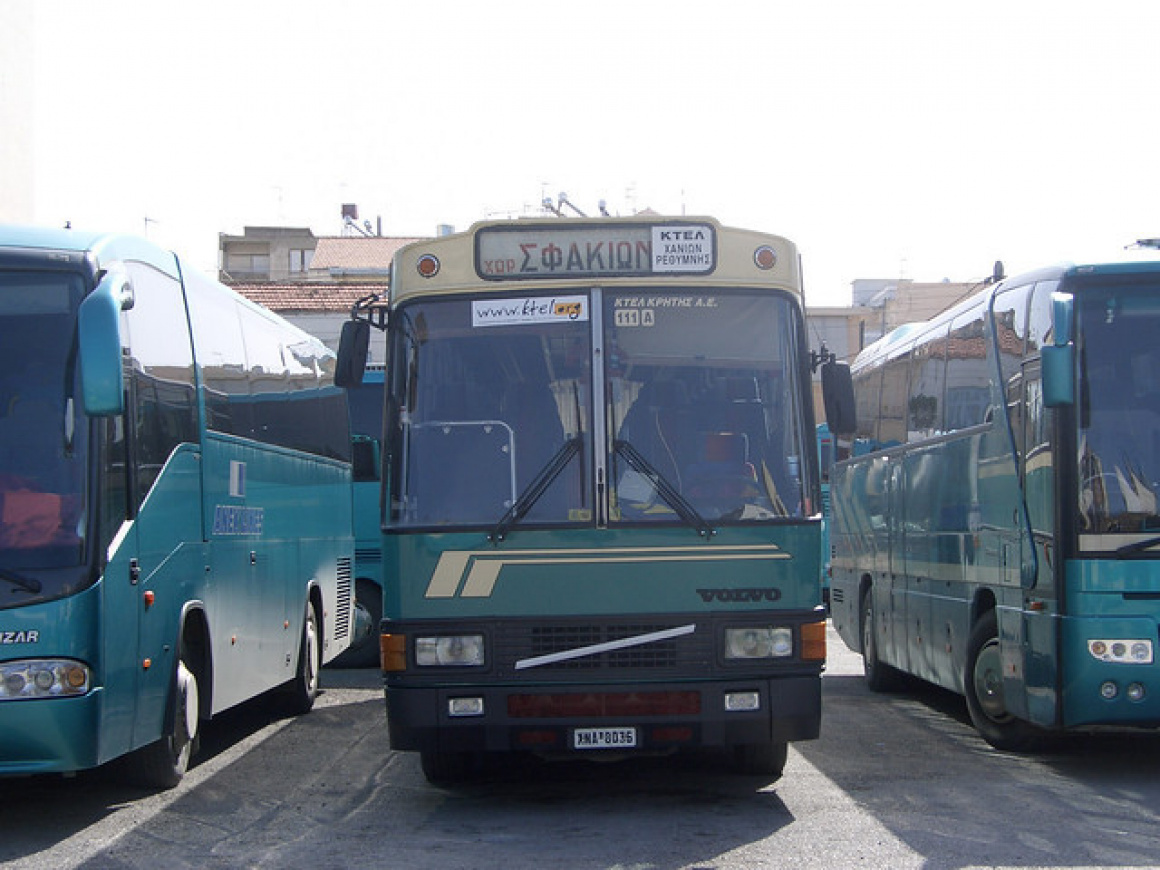Travelling to Crete doesn't have to break the bank. In fact, some of the richest experiences here come cheap or free, if you know where to look. As a Cretan who spent my student years mastering the art of budget travel (yes, even on my own island!), I'm excited to share insider tips for cheap holidays in Crete. Picture this: you're feasting on a €3 souvlaki wrap while watching a glorious sunset, or catching a local bus to a hidden beach cove that costs nothing to enjoy. From affordable stays to inexpensive eats and activities, here's how to make your Crete holiday cheap yet utterly fulfilling.
Budget-Friendly Accommodation and Transport
First things first – sleeping cheap. Crete offers a range of budget accommodations that are clean, safe, and full of character. In the main towns like Chania, Rethymno, and Heraklion, you can find dorm beds in hostels or simple guesthouses for as low as €15-20 a night. I recall one summer during university when a group of friends visited, they stayed at a youth hostel in Rethymno that was basically a historic house with a courtyard. It wasn't fancy, but it had hot showers, comfy bunk beds, and a communal vibe that led them to befriend travellers from all over the world. If hostels aren't your style, look for “domatia” – these are rooms to let in local homes or family-run pensions. In smaller beach towns, signs reading “Rooms – Zimmer – Camere” are common, negotiating on the spot sometimes gets you great deals, especially in shoulder season. I've seen backpackers turn up in Paleochora or Plakias and find a room from a local granny for under €30 a night just by asking around the waterfront.
Self-catering apartments are another cost-cutter. These often come with a little kitchenette. I once stayed in a studio in Agia Galini for €35/night that had a balcony with sea view and a tiny kitchen nook – perfect for making my own coffee and breakfast with bakery goodies, saving on eating out for every meal. Speaking of which, if you love the idea of beach camping, Crete tolerates it in certain areas (though officially it's not always legal). Organized campgrounds in places like Paleochora, Sougia, or Matala charge only a few euros if you have your own tent. Some of my most liberating nights were spent falling asleep to the sound of waves in those spots. Just remember to respect nature and locals – keep the areas clean and be mindful of any no-camping signs.
Getting around Crete cheaply is easy too. The KTEL public bus network is extensive and inexpensive. For example, a bus from Heraklion to Chania costs much less than renting a car or taking a taxi. Buses are comfortable and air-conditioned, I've taken the Chania–Heraklion route dozens of times during uni, gazing out at the olive groves and sea views, all for under €15. They also reach many smaller towns and even popular beaches (like Elafonisi Beach or Vai Palm Beach in summer). If you plan to explore a lot off the main bus routes, renting a car might be worth it – and if you're splitting with friends, it can be economical. Just choose a small car for fuel efficiency. I advise booking in advance for the best rates, and stick-shift cars are more common and cheaper than automatics here.

 'Crete KTEL buses' - Attribution: currybet
'Crete KTEL buses' - Attribution: currybetEating Well on a Budget
One thing I love about Crete is that cheap eating often means fantastic eating. Some of the best meals you'll have might come from a tiny family taverna with paper tablecloths or a street food stall. Street food is king for budget travellers: a classic gyros or souvlaki wrap (pita filled with grilled meat, salad, and tzatziki) costs around €3-3.50 and is both filling and delicious. I still maintain that the souvlaki from a little kiosk in my village is the best on the island – bias aside, those flavours beat many fancy restaurants! Bakeries are another friend: with a few coins you can pick up spanakopita (spinach pie) or tyropita (cheese pie) fresh from the oven for breakfast or lunch on the go.
When dining out, local tavernas off the beaten path are both cheap and authentic. In the mountain village of Therisso, I've feasted on slow-cooked goat with potatoes for under €10, an experience complete with the shepherd (taverna owner) telling tales by the fireplace. In general, avoid the obvious tourist strip restaurants with hawkers, often just a street or two inland you'll find where locals eat. For instance, in Hersonissos (a very touristic town), the tavernas on the seafront are pricier, but if you walk 5 minutes into the old village of Koutouloufari, you'll dine on the same moussaka or fresh fish for a fraction of the price, under the vines, mostly among Greeks. Meze dining (ordering several small dishes to share) is budget-friendly too – a few plates of dakos (tomato & feta on barley rusks), fried zucchini, and maybe some local wine can feed two on very little. And remember, in Crete many tavernas will bring free extras: bread, sometimes a dessert or fruit, and raki at the end – getting more value without spending more.
For groceries, local markets are your best bet. If you have a kitchen where you stay, hit the weekly farmers' markets (there's one in almost every town on different days). You'll get kilos of ripe tomatoes, cucumbers, peppers – basically a Greek salad's worth of ingredients – for just a few euros. Not to mention the fun of interacting with local vendors. I love showing visitors the Saturday market in Chania: you can fill a bag with fresh produce, olives, and cheese on a shoestring budget. Cooking a few meals yourself can significantly cut costs. Even a picnic of market-bought goodies on the beach – say some graviera cheese, fresh bread, olives, and oranges – makes a five-star meal in my book, especially when paired with a €5 bottle of decent Cretan wine or €1 chilled beer from the mini-market.
Affordable Adventures and Free Fun
Crete's beauty and culture can be enjoyed with minimal spending. Nature is free – and Crete has plenty of it. Hiking the Samaria Gorge costs only the park entrance fee (a few euros) and the bus fare to get there. I've done it multiple times, packing a simple lunch and plenty of water, you get a full day's adventure through stunning scenery for very little. Many other gorges (Imbros, Agia Irini) are even free to hike or have a nominal fee. Wandering through old towns and villages costs nothing: explore the winding streets of Chania Old Town or Rethymno's alleys, peek into Byzantine chapels or watch local life in village squares – an experience in itself. Museums and archaeological sites are relatively cheap in Crete compared to other countries. Knossos Palace and the Heraklion Museum have a combined ticket around €20, but note that certain days (like some public holidays or first Sunday of the month in winter) are free entry – something a savvy budget traveller can take advantage of.
Beaches, of course, are free to access (aside from optional sunbed rentals). Some of the most famous, like Balos or Seitan Limania, might require a small parking fee or boat fare if you go by excursion boat, but you can also reach them with a bit of DIY effort (hiking down to Seitan Limania's cove is an adventure I did with friends – zero cost and 100% wow-factor). I often tell visitors: skip the expensive boat tour and use the public ferry that runs along the south coast. For example, a ferry from Hora Sfakion to Loutro is a few euros – cheaper than an organized tour – and you get to spend time in the car-free village of Loutro, a hidden gem.
For entertainment, enjoy the free cultural events that often happen, especially in summer. Many villages have free music nights during festivals, and outdoor cinemas in towns are inexpensive (and an atmospheric way to spend an evening under the stars watching a film with Greek subtitles). In August, there are often wine or raki festivals with a small entry fee that includes tastings. I fondly recall the Chania wine festival where for a modest fee, we got a glass and unlimited refills of local wines, plus live music – an amazing budget night out.
Money-Saving Tips from a Local
Travel Off-Season: If you can, visit in late spring or early autumn. Not only are flights often cheaper, but accommodation prices can be nearly half of peak summer rates. Plus, you'll enjoy a quieter island. I've seen hotel rooms that go for €80 in August drop to €40 in October, yet the sea is still warm and the weather pleasant.
Use Internal Links and Info: Planning with the right info can prevent overspending. For example, knowing that a local bus to the airport is just €2 saved my cousin a €30 taxi ride.(As a reader, make use of resources like our Is Crete Expensive? page to gauge typical prices and budget accordingly.)
Eat Like a Local: Follow the locals to inexpensive eateries. Typically, places filled with Greek families will have fair prices and hearty portions. In villages, there's a concept of “menu of the day” – not written, but the owner will just tell you what pots are on the stove. These are usually cheaper than ordering off a tourist menu, and absolutely delicious.
Tap Water vs Bottled: Buying bottled water can add up, though it's cheap (€0.50 for 1.5L in supermarkets if you buy them in bulk). In many areas, tap water in Crete is safe to drink (it's monitored by the state), though locals sometimes prefer bottled due to taste. To save money and plastic, consider refilling a bottle from your hotel's tap if the taste is okay, or use public springs/fountains. Many villages have free flowing spring water taps (I fill bottles whenever I visit my village where the spring water tastes like heaven). This can save a few euros every day.
Group up for Activities: If you're solo but want to do a guided excursion (like a jeep safari or boat trip), sometimes you get better rates if you book as a small group. Check notice boards at hostels or online forums to team up with others for car rentals or tours. Once, I saw three solo travellers who met in a hostel pool money to rent a car for a road-trip day – they ended up good friends and spent under €10 each for a full day of fun.
Enjoying Crete on a budget is not only possible, it can be incredibly rewarding. You'll connect more with local life and perhaps come away with stories that those in big resorts might miss. I still remember backpackers I met who spent almost nothing yet were rich in experiences – like the couple who camped on Gavdos (a tiny island off Crete's coast) and were invited by locals to a fishing trip, coming back with fresh fish and new friends. Crete has a generous spirit, and it extends to travellers of all budgets. Embrace the simple pleasures – the sun, the sea, the food, and the people – and you'll find that a “cheap” holiday here can feel ridiculously rich in every other sense.
For families wondering if a budget trip is feasible, our Family Holidays guide offers tips on keeping the whole crew happy in Crete without overspending.


